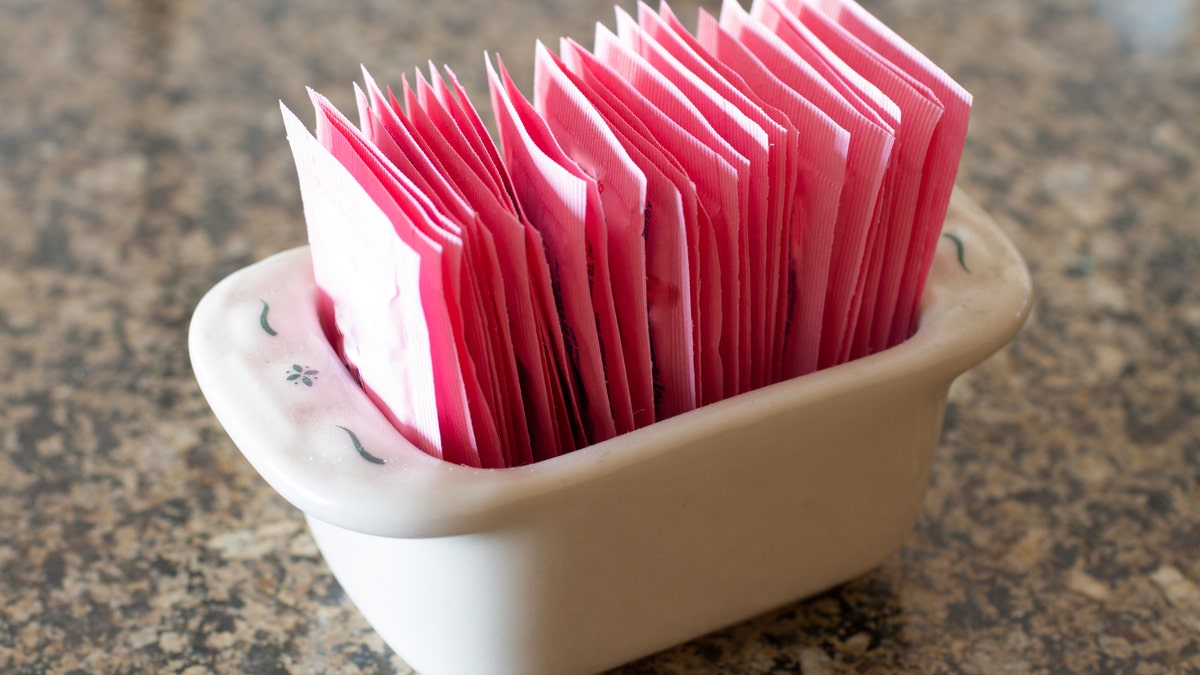
A stoneware container holding packets of artificial sweetener. (iStock)
An increasing number of American adults and children are consuming artificial sweeteners, which are marketed as low calorie but whose health consequences are still not yet fully known, according to a study released Tuesday.
The results, published in the Journal of the Academy of Nutrition and Dietetics, observed a 200 percent increase in consumption of the artificial sweeteners among children, and a 54 percent increase among adults, from 1999 to 2012. In 1999, only 8.7 percent of children reported consuming low-calorie sweeteners, but in 2012, that number jumped to 25.1 percent, the study found.
"The findings are important, especially for children, because some studies suggest a link between low-calorie sweeteners and obesity, diabetes and other health issues,” lead study author Dr. Allison Sylvetsky, assistant professor of exercise and nutrition sciences at the George Washington University Milken Institute School of Public Health, said in a news release.
According to the release, the study offers the most recent data regarding the U.S. population’s consumption of low-calorie sweeteners in foods, beverages and packets.
The Food and Drug Administration (FDA) has approved several of these sweeteners, which are used in lieu of sugar, including acesulfame-potassium (also called acesulfame K), aspartame, saccharin, sucralose, neotame and advantame. Stevioside and rebaudioside A, plant extracts, are also used as sugar replacements and are FDA approved.
To draw their conclusions, researchers studied data involving 17,000 adult men, women and children that were stored in the National Health and Nutrition Evaluation Survey (NHANES) from 2009 to 2012, and compared their analysis to a previous study that used data from 1999-2008. Of the data, they specifically reviewed survey results from two dietary interviews in which consumers recalled what they ate or drank during the 24-hour period prior.
Researchers found 44 percent of adults and 20 percent of children had consumed low-calorie sweeteners more than once daily, and that the likelihood of consumption increased in conjunction with adult body mass index (BMI). The study revealed that children as young as 2 reported eating or drinking low-calorie-sweetened foods and drinks— representing one in four children involved.
Study authors pointed out some parents may not understand that labels indicating “light” or “no added sugar” could mean a product contains a low-calorie sweetener, which may not necessarily be healthier. They advised parents to follow federal dietary guidelines. Those recommendations include limiting consumption of added sugars.
"Drink water instead of soda. Sweeten a serving of plain yogurt with a little fruit," Sylvetsky said in the release. "And don't forget an apple or another piece of fresh fruit is a great snack for both kids and adults."
